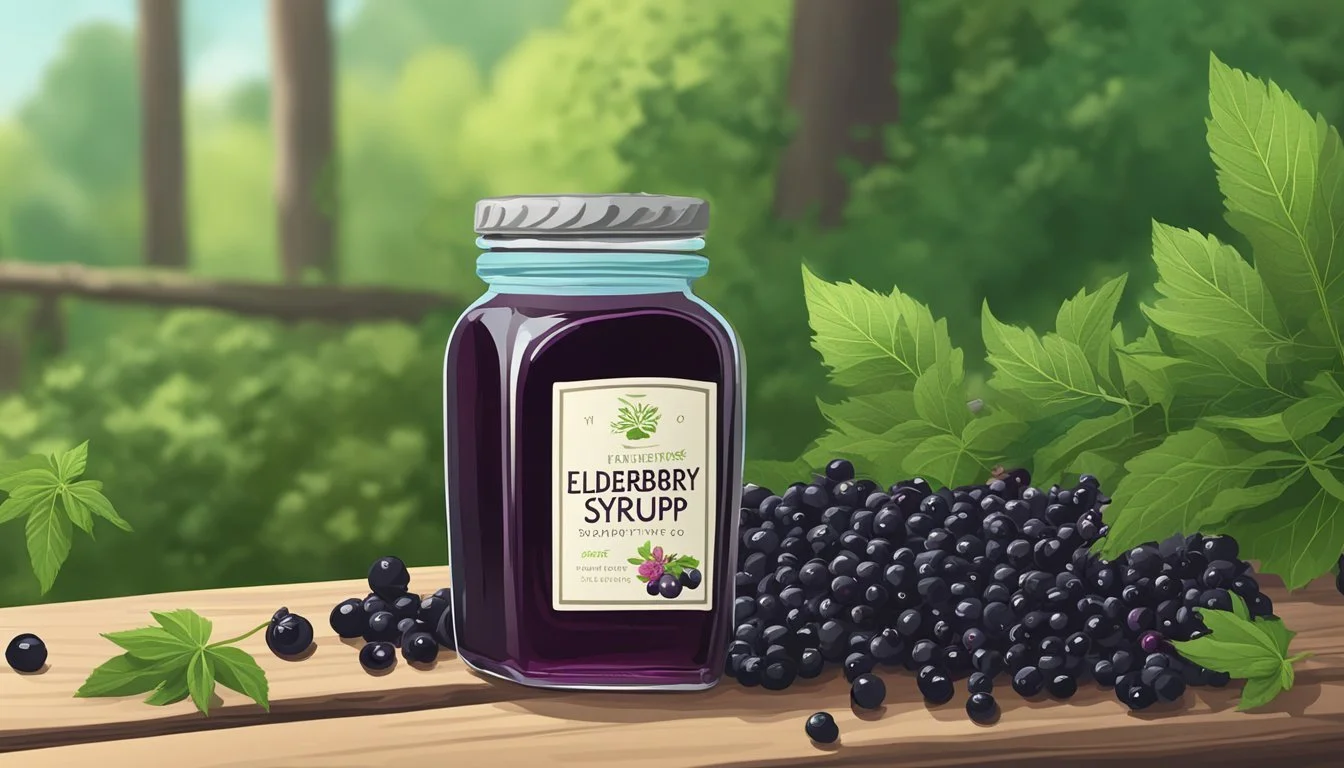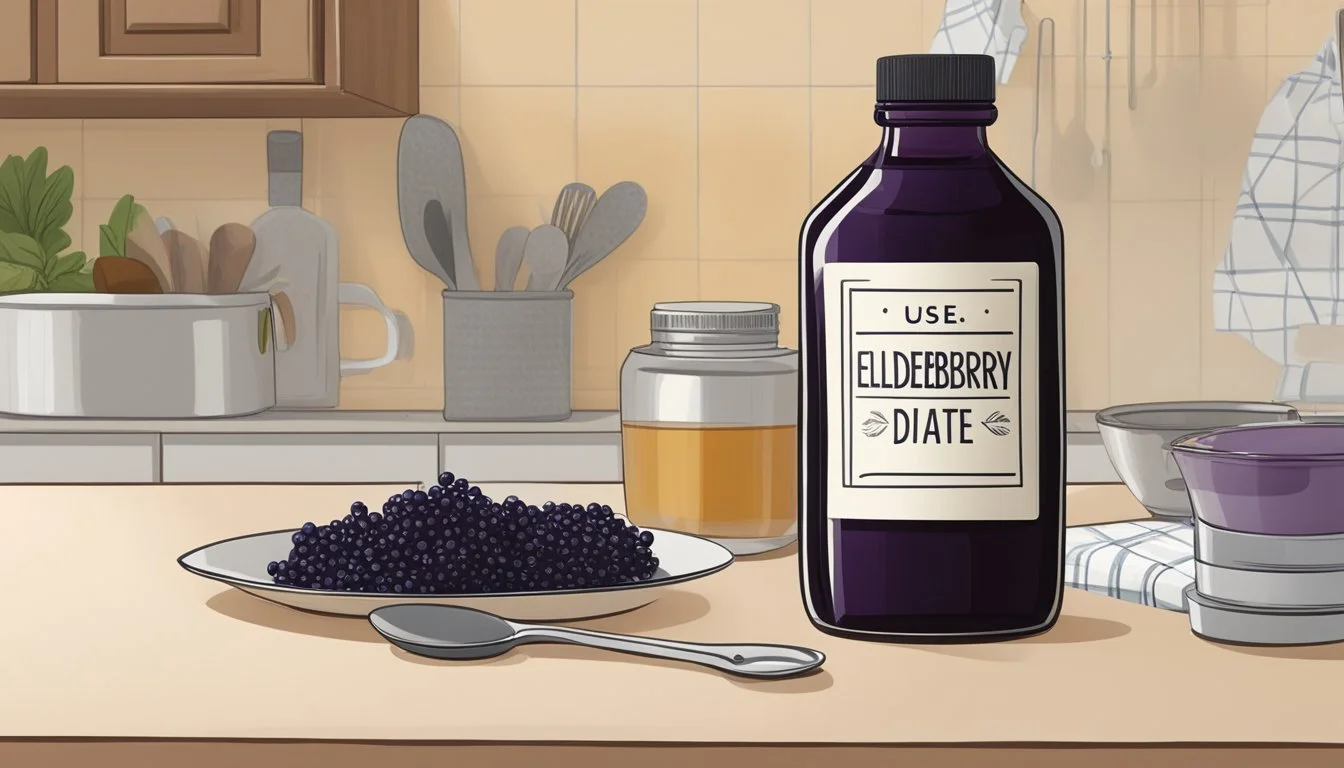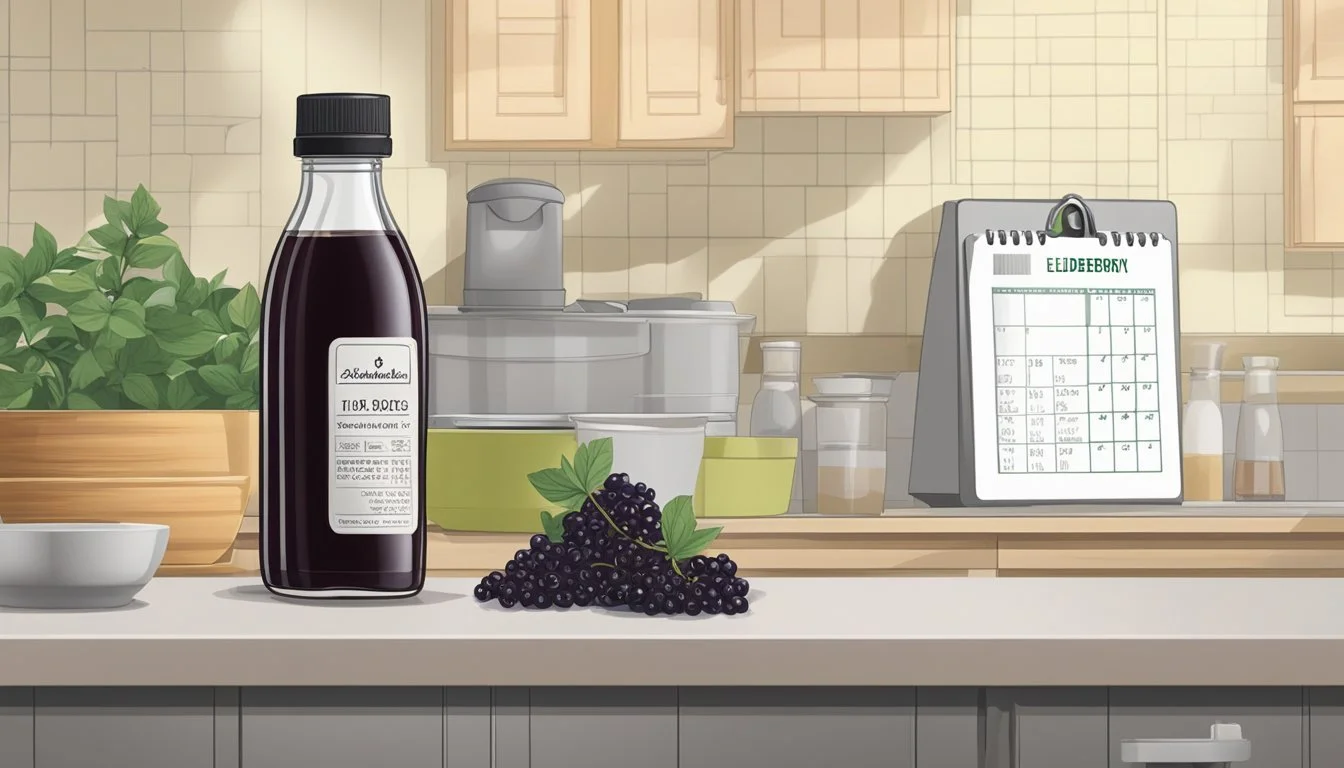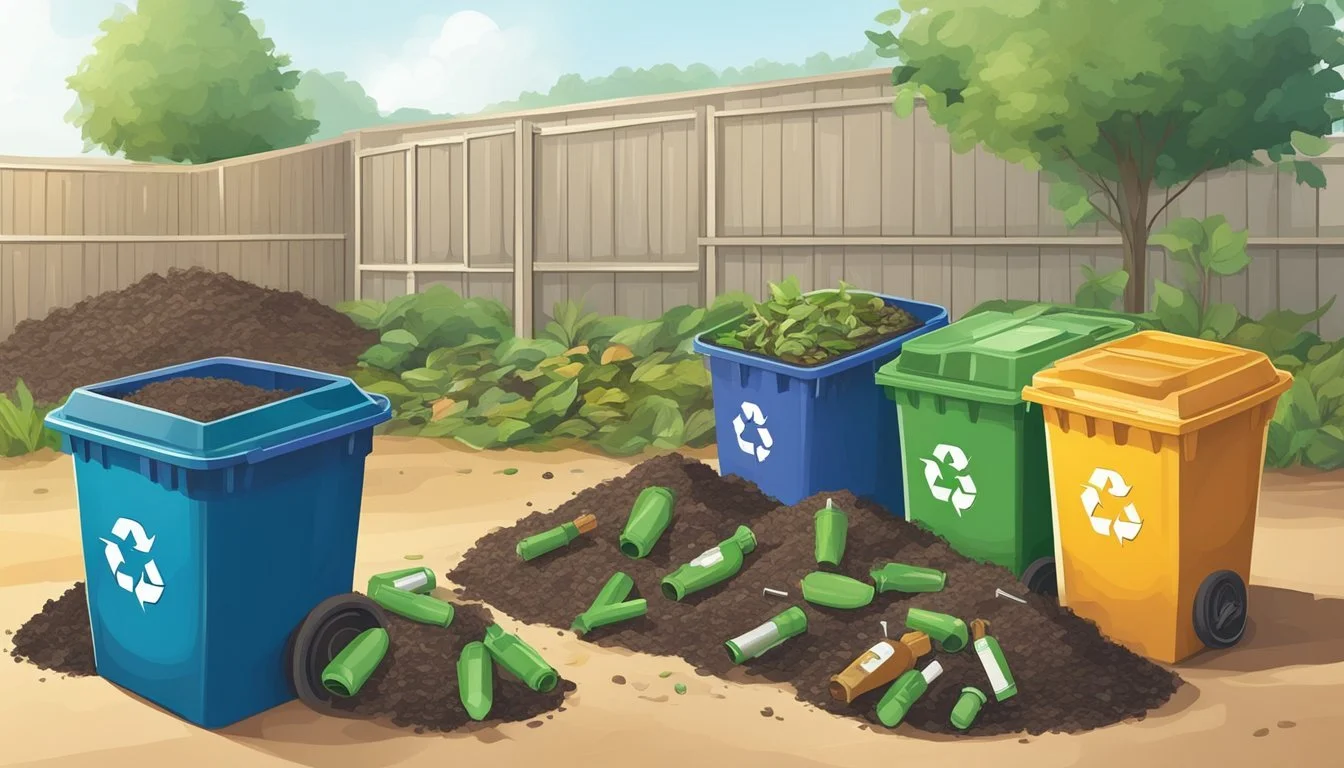How Long Does Elderberry Syrup Last?
Shelf Life and Storage Tips
Elderberry syrup has gained popularity for its potential health benefits, particularly in boosting immune function and alleviating cold and flu symptoms. Much like any natural remedy, the shelf life of elderberry syrup is a pertinent concern for those who make it at home or purchase it. The longevity of the syrup depends primarily on the method of preparation, ingredients, and storage conditions.
When made with care and stored properly, homemade elderberry syrup can last up to six months in the refrigerator. Store-bought versions may have a longer shelf life due to preservatives and stabilizers that extend durability. Regardless of the source, ensuring a tight-fitting lid on containers and keeping the syrup cold are crucial steps to maintain its quality. It is generally advised against consuming elderberry syrup past its expiration date to avoid diminished potency and potential adverse effects.
Understanding Elderberry Syrup
Elderberry syrup is a concentrated extract of elderberries, rich in antioxidants and vitamins, heralded for its immune-boosting properties. This section delves into the medicinal benefits and composition of elderberry syrup.
Benefits of Elderberry Syrup
Elderberry syrup has been utilized as a natural remedy for centuries. The syrup contains high levels of vitamin C and antioxidants which contribute to its purported immune-boosting effects. It is often taken during cold and flu season for its antiviral properties. Those who consume elderberry syrup regularly report fewer and less severe symptoms when they get colds or the flu.
Composition and Main Ingredients
The primary component of elderberry syrup is the extract from the elderberries themselves. These berries are rich in compounds that are thought to have medicinal properties. In addition to the berries, elderberry syrup might contain other ingredients such as honey or other sweeteners to enhance flavor. Some formulations might also include additional herbs or vitamin C to further support the immune system. It is the synergy between these ingredients that is believed to make elderberry syrup an effective aid against common respiratory ailments.
Storage Fundamentals
Proper storage is essential for maximizing the shelf life of elderberry syrup. By understanding the best conditions to store this wellness supplement, one ensures its efficacy and safety for consumption over time.
Optimal Storage Conditions
To maintain the quality of elderberry syrup, it should be stored in a glass bottle that is tightly sealed. Exposure to light and heat can degrade the syrup, so a cool, dark place is ideal.
Refrigeration vs. Room Temperature
When kept at room temperature, elderberry syrup generally has a shorter lifespan of approximately 4 to 5 days. Refrigeration significantly extends this period; sealed containers of elderberry syrup can often remain fresh in the fridge for 90 to 180 days. When not properly sealed or if left open, it may spoil more quickly.
Freezing Elderberry Syrup
Freezing is an effective method to preserve elderberry syrup for the long term. When the syrup is stored in a freezer, it can maintain its qualities for years provided it's in a suitable container like a glass bottle that can withstand the temperature change. Always leave some room at the top of the container before sealing as the liquid expands when frozen.
Shelf Life and Preservation
Elderberry syrup's shelf life varies depending on storage conditions, with a properly stored batch lasting between 90 days to a year. Understanding the signs of freshness and spoilage ensures the syrup remains safe for consumption.
Determining Freshness
Elderberry syrup is fresh when it maintains its characteristic berry aroma, deep purple color, and viscous consistency. To ascertain freshness after opening, one should reference the expiration date on commercially prepared syrups or note the date of creation for homemade syrups. For optimal freshness:
In the fridge: Homemade syrup lasts up to six months, while commercial varieties may last up to a year.
In the freezer: Properly sealed, elderberry syrup can remain fresh for several years.
Signs of Spoilage
Any deviation from the syrup's original aroma and appearance may indicate spoilage. A sour or off smell, fermentation bubbles, or any visual signs of mold are clear indicators the syrup is no longer safe to consume. If the syrup's texture changes to watery or its color fades, this suggests a loss of quality. Spoilage signs include:
Smell: A pungent or yeasty smell replacing the natural berry scent.
Appearance: Discoloration, mold growth, or any unexpected changes in texture.
By closely monitoring freshness and being vigilant for spoilage signs, one ensures the safe and effective use of elderberry syrup.
Homemade vs. Store-Bought Varieties
When it comes to the longevity of elderberry syrup, there are distinct differences between the homemade versions and those purchased from a store. The primary factors affecting shelf life include the presence of preservatives, types of sweeteners used, and the processing method.
Homemade Elderberry Syrup Shelf Life
Homemade elderberry syrup has a shorter shelf life than its commercial counterpart due to the lack of preservatives. Typically, it can last 2 to 3 months in the refrigerator when stored in an airtight container. Some people establish freshness by using natural preservatives such as honey, particularly raw honey, which may slightly extend this period.
Fridge: Up to 2-3 months
Freezer: Up to 6 months
Commercial Elderberry Syrup Durability
Store-bought elderberry syrup generally contains added preservatives which prolong its shelf life. An unopened bottle can last significantly longer on the shelf, and once opened, it tends to remain fresh for up to two months if refrigerated promptly after each use. The exact duration of shelf life should be checked against the manufacturer's recommendations.
Unopened: Check expiration date
Opened (Refrigerated): Up to 2 months
The quality of commercial syrup may also be influenced by the type and amount of sweeteners and preservatives used, which differ from one brand to another.
Safe Usage Practices
When using elderberry syrup, one must prioritize safety by understanding proper storage, shelf life, and the precautions for different populations to avoid contamination.
For Various Populations
Children, pregnant women, and those who are breastfeeding should exercise particular caution with elderberry syrup. It's essential to consult with a healthcare provider before using, as certain supplements can be toxic to these sensitive groups. They must always err on the side of caution with dosage and ensure that the syrup has not surpassed its expiration date or exhibited any spoilage signs.
Children: Consult with a pediatrician for appropriate dosages.
Pregnant Women: Seek medical advice prior to use to ensure safety.
Breastfeeding: Confirm that the syrup poses no risk to the infant.
Avoiding Contamination
Maintaining the syrup's integrity is critical for safe consumption. To avoid contamination, one must keep the syrup sealed tightly and refrigerated after opening. If left unsealed or at room temperature, the syrup may ferment or spoil prematurely, posing a health risk.
Storage: Refrigerate and tightly seal the bottle.
Inspection: Routinely check for off smells, discoloration, or mold.
Spoilage: Discard immediately if signs of spoilage are present.
Proper storage and attentiveness to the syrup's condition are essential safeguards against ingesting a potentially spoiled product.
Enhancing Potency and Effectiveness
For elderberry syrup to maintain its effectiveness and potency, especially as an immune-boosting medicine, certain practices in preparation and use are crucial.
Incorporating Additional Ingredients
Ingredients such as ginger, lemon juice, cinnamon, and cloves not only complement elderberry's flavor but may contribute to its overall health benefits. For instance:
Ginger: Brings anti-inflammatory properties and can enhance the syrup's warming effect.
Lemon juice: Offers a boost of vitamin C, which supports the immune system.
Cinnamon: Has antimicrobial and anti-inflammatory effects and may help with preserving the syrup.
Cloves: Contain antioxidants and can improve the syrup’s antiviral capabilities.
Best Practices for Use
It is essential to use elderberry syrup within the recommended timeframe:
Freshness: Consume homemade syrup within three months if refrigerated to ensure maximum potency.
Storage: Keep the syrup in a glass jar in the fridge.
Freezing: Freeze in ice cube trays to defrost and use as needed to preserve efficacy for an extended period.
Avoid Post-Expiration Consumption: Using elderberry syrup past its expiration may result in decreased potency and effectiveness.
FAQs on Elderberry Syrup Use
When considering the use of elderberry syrup, consumers typically have questions regarding the appropriate dosage, common concerns, and the potential for supplementing with other remedies. The following subsections aim to address these key areas with specific and clear information.
Dosage Recommendations
For individuals taking elderberry syrup to address symptoms of colds or the flu, it is usually suggested that adults can take 5 to 15 ml of the syrup four times a day. Children may also use elderberry syrup, but at lower doses, typically half of the adult dose. It is crucial to consult with a healthcare provider for personalized dosage recommendations to avoid potential side effects.
Common Concerns
Allergies: Elderberry products can cause allergic reactions in some individuals. Symptoms might include itching or inflammation. Users with known allergies to plants in the Sambucus family should refrain from using elderberry syrup.
Shelf Life & Spoilage: Properly stored in a refrigerator, an opened bottle of elderberry syrup could last up to two months. However, varying factors such as seal integrity and storage conditions could affect this duration. Indicators of spoilage include an off smell, unusual consistency, or a change in color.
Side Effects: While rare, some users might experience mild side effects such as nausea or gastrointestinal discomfort. It is advised to stop use and seek medical attention if adverse reactions occur.
Supplementing with Other Remedies
When using elderberry syrup in conjunction with other remedies for cold and flu symptoms, including cough suppressants or decongestants, one should be cautious to avoid overlapping effects that may increase the risk of side effects. Combining different supplements or medications should be done under the guidance of a healthcare provider.
Additional Uses and Applications
Elderberry syrup is not just a health supplement; its unique flavor profile makes it a versatile ingredient in the culinary world, and elderberry itself can be used in various alternative forms.
In Cooking and Baking
In culinary practices, elderberry syrup can enhance a variety of dishes with its deeply fruity essence. It serves as a flavorful addition to:
Pies: A drizzle of elderberry syrup can add complexity to berry pies.
Ice Cream: Swirl the syrup into homemade ice cream for a subtle, tangy kick.
Its uses extend beyond just sweet treats, as the syrup can also be incorporated into savory sauces and glazes, offering a berry note to complement meats and cheeses.
Alternative Forms of Elderberry
Aside from syrup, elderberry is available in several other forms, each suitable for different uses:
Elderberry Tincture: A concentrated alcoholic extract, often used for its purported medicinal benefits.
Wine: Fermented elderberries produce a rich and robust wine, enjoyed for its unique flavor profile.
Moreover, elderberry's alcohol solubility means it can be a base for homemade spirits or liqueurs, with potential for both medicinal and recreational consumption.
Proper Disposal and Recycling
When an individual reaches the end of their elderberry syrup’s shelf life, it is crucial to consider the environmental impact of disposal. Firstly, one should never pour syrup down the drain as it can attract pests and may contribute to pipe blockages.
For glass jars, the disposal process is straightforward and environmentally friendly:
Empty the jar: Ensure all remnants of syrup are removed.
Rinse thoroughly: Clean the jar with warm, soapy water.
Recycle: Place the glass jar in the recycling bin.
Canning jars used for elderberry syrup can also be recycled or, better yet, reused. Here's a quick guide to preparing canning jars for reuse:
Wash: Clean the jars and lids with hot, soapy water.
Inspect: Check for cracks or chips that might compromise the seal.
Sterilize: If reusing for canning, always sterilize the jars and lids according to safe canning practices.
Store: Keep the sterilized jars and lids in a clean, dry place until next use.
Recycling plays a vital part in reducing waste and conserving resources. Users should be encouraged to contact local waste management services for specific guidelines as recycling regulations may vary. By properly disposing of and recycling elderberry syrup containers, one contributes to a more sustainable ecosystem.










